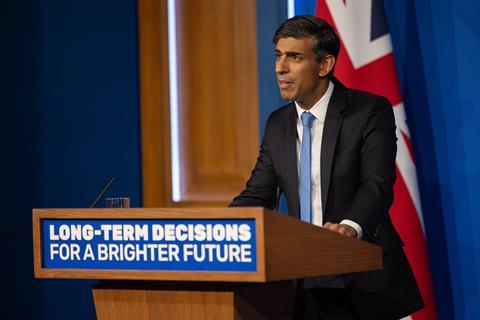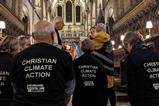The government’s U-turn on environmental policies will negatively impact the poorest in our society, both here and abroad, says Holly-Anna Petersen. It is not what God would have us do

This week, the Prime Minister took to the podium and declared a roll back of environmental policies. The phase out of new petrol cars was pushed back from 2030 to 2035; rules around the phasing out of gas boilers were weakened and requirements for landlords to ensure their properties are energy efficient were axed, to name a few. In doing this, he has made it much harder for the UK to meet its 2030 net zero goals, according to the Climate Change Committee.
When the policy changes were challenged following his speech, he reasoned that this change in direction was for the benefit of the poor, and encouraged people to think of those on the sharp end of the cost-of-living crisis.
On the face of things, that seems a reasonable proposition. Looking after the poor is a strong biblical principle. Proverbs 31:8-9 encourages us to “speak up for those who cannot speak for themselves, for the rights of all who are destitute.”
Despite his protestations to the contrary, Sunak is playing politics with the climate
However, another biblical principle is truthfulness, and this is where Sunak’s speech falls short. Because the very people whom the government suggests will be supported by these announcements are, in fact, the ones who will suffer the most as a result.
The real impact
In response to the announcements, Citizens Advice issued a warning that the changes will actually raise household bills, not lower them. This follows analysis by Carbon Brief that cuts to climate policies made under David Cameron’s premiership also cost UK consumers around £2.5bn.
This is because renewable energy is not driving the cost-of-living crisis. Green energy is cheaper than fossil fuels. We are in a gas-fuelled economic crisis, where fossil fuel companies receive subsidies, paid for through taxation, then charge us a fortune in bills and pocket record profits. So while richer landlords might be celebrating that they no longer have to insulate their rental homes, poorer tenants will be forking out for sky-high gas bills. Britain already has some of the least energy efficient homes in Europe. These announcements will only make it worse.
And what of the poor and vulnerable beyond Britain’s shores? Our brothers and sisters that have done the least to cause the climate crisis are suffering the most from the droughts, storms and floods that are destroying their lives and livelihoods. The UK has the eighth largest cumulative emissions in the world. We have a duty of care to clean up the mess we have caused and love our global neighbours as ourselves.
Chilling
The new policies will also have knock-on impacts for the economy, with corporate Britain making it very clear that they think these changes are bad for business. Ian Plummer, commercial director at Auto Trader, said: “The PM has left the car industry and drivers high and dry by sacrificing the 2030 target on the altar of political advantage”. In his speech, Sunak said he was providing more clarity, but by moving the goal posts, he has sown confusion and uncertainty which makes Britain a less attractive place to do business.
These changes will actually raise household bills, not lower them
There were, however, some changes that should have a positive impact. For example, a government scheme which provides grants for air source heat pumps will increase to £7,500. The roll out of charging points for electric cars has also finally been agreed. Had these long-called for steps been made earlier, we would have made more progress in cleaning up our energy and transport systems, and not be so far away from meeting our decarbonisation targets.
For me, the most chilling dynamic of Sunak’s speech was how emotionally detached he was. As news of floods and fires around the world become the new norm, Sunak delivered his roll-back of climate policies with a calm serenity. The only time he got emotional was when journalists asked how his children would respond to these new announcements. His sudden show of frustration suggests that, underneath the carefully crafted words, he knows the truth. That despite his protestations to the contrary, he is playing politics with the climate in a desperate bid to save his sinking premiership.
Sadly, he seems willing to sacrifice the poor in our own society, the climate-vulnerable overseas and even the prospects of his own children’s generation to do so.





































3 Readers' comments